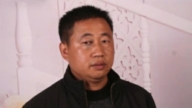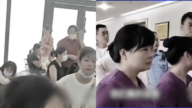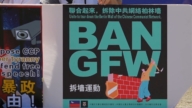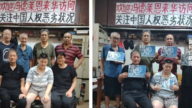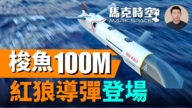【新唐人2011年12月31日讯】今年,中国各地的罢工事件此起彼伏,特别是珠三角地区的私营加工企业,陷入了一股罢工潮。回顾一整年的罢工事件起因,大部分与劳动者收入过低有关,加上中国通货膨胀严重,生活成本增加,工人们感叹日子活不下去。而中国的工会组织在面对罢工事件,难以发挥作用;执法机关不能维护工人利益、追究厂方法律责任等,都是中国工人面临的处境。
“LG中国”南京工厂8000名员工26号开始连续3天的罢工事件,表面看似已被平息。
据了解,“LG”韩籍员工年终奖金为6.5个月工资,但中国普通员工的奖金从去年的3个月工资减为1个月,这种差别待遇让中国员工颇受歧视。虽然LG在罢工事件之后调整奖金为两个月工资,但厂方还提出:带头闹事的追究法律责任、再有闹事的关闭南京工厂。
《每日经济新闻》记者调查发现,年终奖的落差可能只是事件的导火索,LGD南京工厂的部分员工对公司早有怨言。主要是频繁加班及薪酬较低。
《美国之音》年终报告:“2011中国罢工潮”提到,罢工事件的起因,大部分与劳动者收入过低有关。而中国通货膨胀严重,生活成本增加,由于雇主的压榨或者种种制度上的限制,许多人的收入跟不上通涨的脚步。
南京大学文学博士刘开明,现任“深圳当代社会观察研究所”所长,他向《新唐人》表示,过去十来年,罢工事件一直在增长,特别是2008年实施“劳动合同法”和“劳动争议仲裁法”后,劳动争议案件快速增加。
刘开明:“到去年,我们看中国的劳动争议案件已经达到120多万宗,比08年又多了好多,08年是93万宗。那么今年的情况比去年还要厉害!”
私营企业雇主往往把员工工资压到最低限度。刘开明认为,中国的经济发展已经到了新的转折点,过去利用廉价劳动力、剥削劳工以换取利润的传统时代,已经过去。
刘开明:“工人不再能接受这种糟糕的工作环境,他们要求得到尊重、他们要求分享企业发展的成果、他们要求保护他们的权益。”
一些经济学家也认为,欧美市场今年对中国制造产品的订单减少,中国企业的直接反应是削减成本,压低工资,增加工人劳动时间,使得劳资关系雪上加霜。
“民生观察”网站负责人刘飞跃:“现在受到国内外经济环境的影响,订单减少,很多企业就是生存很困难,有很多老板都跑掉了嘛!这也就造成工人们他们的处境、他们的就业机会、他们的工资待遇等都受到很大的影响,就是这原因造成的罢工的现像一再发生。”
《华尔街日报》报导,中国制造业11月继续缩减,衡量制造业增长规模的采购经理人指数为2009年以来的最低水平。《华尔街日报》援引汇丰银行经济研究专家屈宏斌的话说,中国经济仍然面对出口下滑的风险。报导说,明年珠三角地区的制造业将面临更大压力。
另一方面,地方政府在发生罢工时往往会出面在劳资双方之间斡旋。中国劳动通讯的报告说,“维稳”已经成为当局的一种执政的模式。罢工等工人集体行动一直被视为“社会不稳定因素”,被列入维稳的对像。批评者认为,中国缺乏劳工集体谈判制度,在政府介入下,工厂只会看政府的眼色,不会真正顾及员工利益。
博客于斌在博文中说,面对韩国LG工厂明显的不合理和非法、歧视的行为,为什么我们坐以忍受?中国政府的执法机关为什么不出来维护工人利益、追究厂方法律责任?中国的工会组织干什么去了?他说,在这起事件里根本就没有看到“工会”的影子。
新唐人记者陈汉、周平、肖颜采访综合报导。
Chinese workers’strikes
This year, a wave of strikes happened in China‘s private
processing enterprises in the Pearl River Delta region.
On reviewing the causes of strikes over the whole year,
most of them are related to low wages for the workers.
Inflation is serious in China, and the cost of living increases.
So the workers are worried that they cannot survive.
However, it’s difficult for the labor unions to play a role.
Law enforcement agencies can’t protect workers’ interests
by investigating factories’ liabilities.
All these are situations that Chinese worker shave to face
every day.
Eight thousand employees of “LG China" in Nanjing carried
out a 3-day consecutive strike on December 26th.
On the surface, things seem to have been settled.
It is understood that Korean employees of “LG" have year-end
bonuses of more than six months salary.
But the bonus of Chinese ordinary staff decreased from three
months salary to only one month’s salary in the last year.
This difference in treatment makes Chinese employees feel
discriminated against.
Although LG adjusted the bonus to two months salary
after the strike,
the factory also made it clear that the leader of the strike
will be investigated. There may be legal consequences.
The factory in Nanjing will be closed if workers strike again.
Reporters of “Daily Economic News" found that the difference
in year-end bonuses may just be the fuse to spark the strike.
Some employees of LG factory in Nanjing complained before
the strike The main reasons are frequent overtime and low pay.
The year-end report “Voice of America", “2011 China strikes"
identified causes were related to the low incomes of workers.
Inflation in China is serious; the cost of living increases. Many
people’s incomes can not keep up with the pace of inflation.
Workers are exploited by their Employers and restricted by
various institutional constraints,
Liu Kaiming, Doctor of Nanjing University and incumbent
director Institute of Shenzhen Contemporary Observation
Told NTD that, in the past decade, strikes have been growing.
Especially since implementation of the “Labor Contract Law"
and “labor dispute Arbitration Law" in 2008, the cases of
labor disputes have rapidly increased.
Liu Kaiming: “Last year, we found that the labor dispute cases
in China had reached more than 1.2 million.
This is a lot more than in 2008, which were 930 thousand cases.
And the situation in 2011 is even more serious than last year."
The employers of private enterprises keep staff salaries to a
minimum.
Liu Kaiming thinks that China’s economic development has
reached a new turning point.
The traditional era, with low cost labor and exploitation of
labor for profits, has passed.
Liu Kaiming: “Workers no longer accept such a poor work
environment. They demand to be respected.
They want to share the results of the enterprise’s development.
They want to protect their interests."
Some economists also believe that U.S. and European markets
reduced orders of China-made products this year.
The direct response of Chinese employers is to cut costs, cut
salary, increase work hours, making labor relations even worse.
Liu Feiyue, webmaster of “Watch the people’s livelihood” said:
“At present, affected by domestic and international economic environment,
with order reduced, many enterprises are finding
it very difficult to survive. Many bosses have run away from the situation.
The workers are very worried about this their job opportunity
and salary. That’s why the strikes happened repeatedly."
The “Wall Street Journal" reported that China’s manufacturing
sector continued to shrink in November.
The purchasing manager index of measuring the scale of
manufacturing growth went to the lowest level since 2009.
The paper quoted Qu Hongbin, HSBC’s economic expert who
said China’s economy still faces the risk of decline in exports.
It reported that next year, the manufacturing sector in the
Pearl River Delta region will face even greater pressure.
On the other hand, when strikes happen, the local government
often come to mediate between employees and employers.
China Labor Communications reported “maintaining stability"
has become a model of the government ruling.
Strikes and workers’ collective actions are regarded as “social
instability" and listed in the rules of maintaining stability.
Critics argue that China lacks a collective bargaining system.
If the government intervenes, the factories will follow blindly.
The employers will not really take the workers’ interests
into account.
Netizen Yu Bin said in his blog when facing the manifestly
unreasonable, illegal and discriminatory behavior
Displayed by South Korea’s LG factory,
why do we have to endure?
Why don’t Chinese government’s law enforcement agencies
maintain the interests of workers and investigate the factory?
Where was the labor union? And what was it doing? He said in
this incident no one had seen anything of the “labor unions".
NTD reporters Chen Han, Zhou Ping and Xiao Yan


